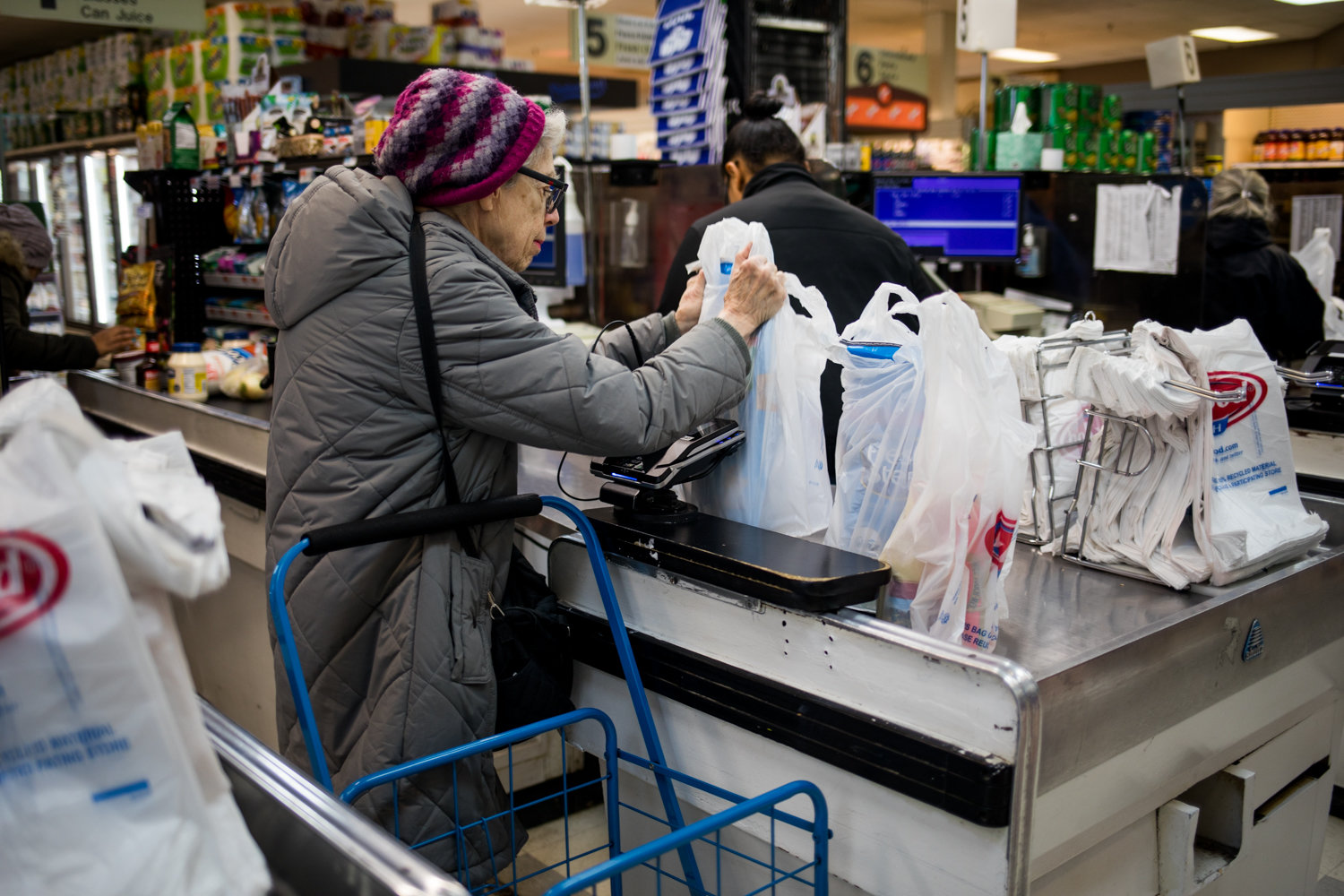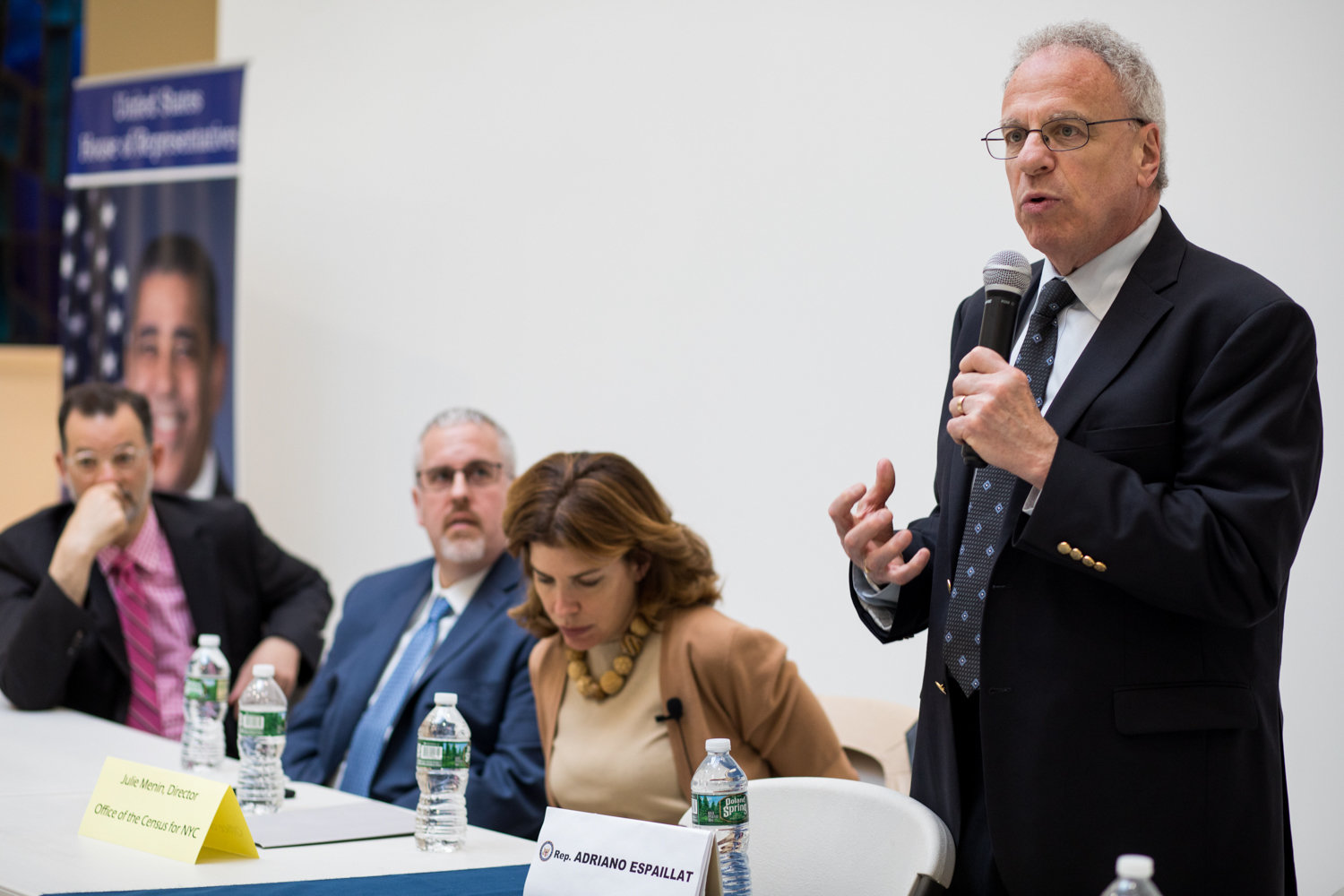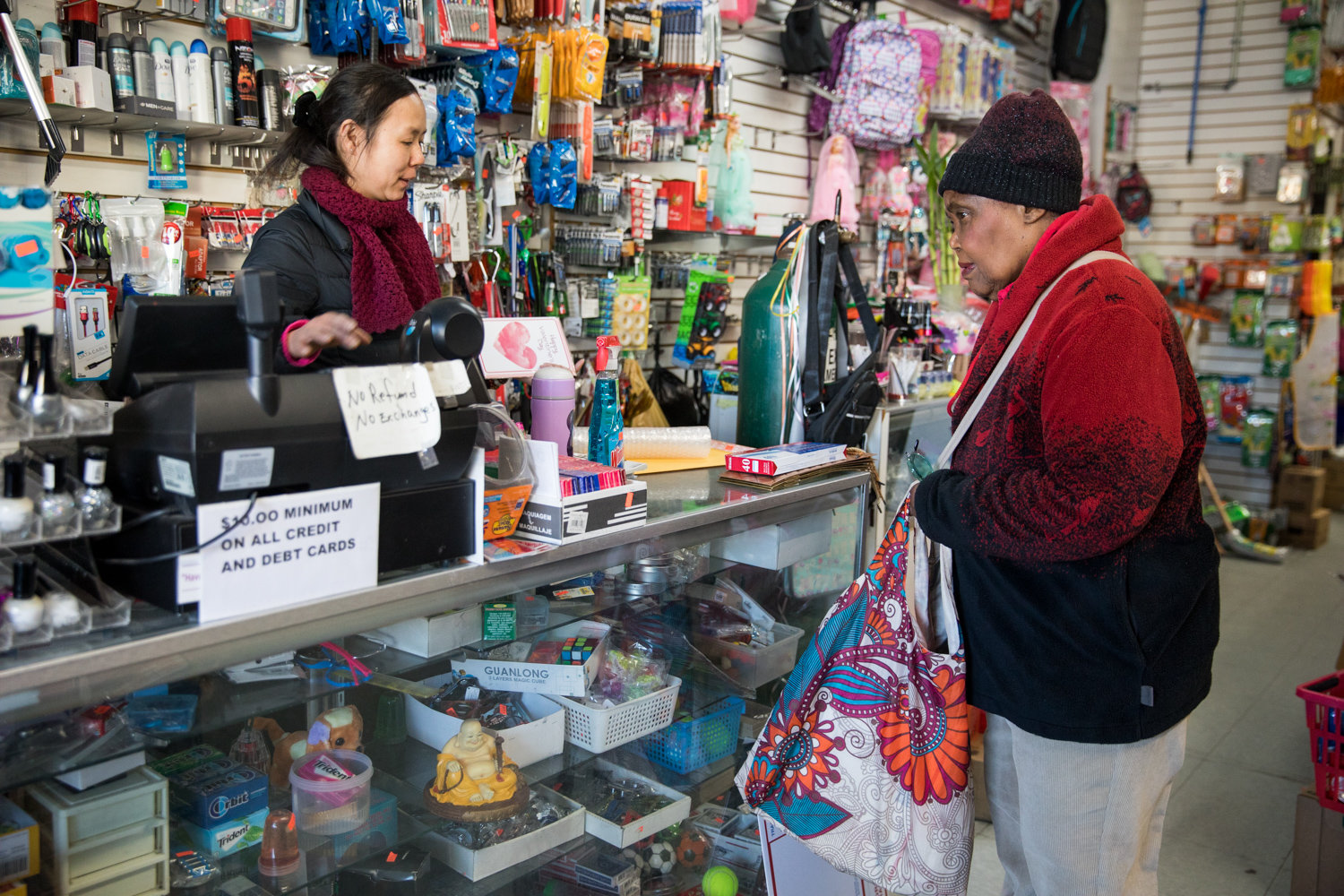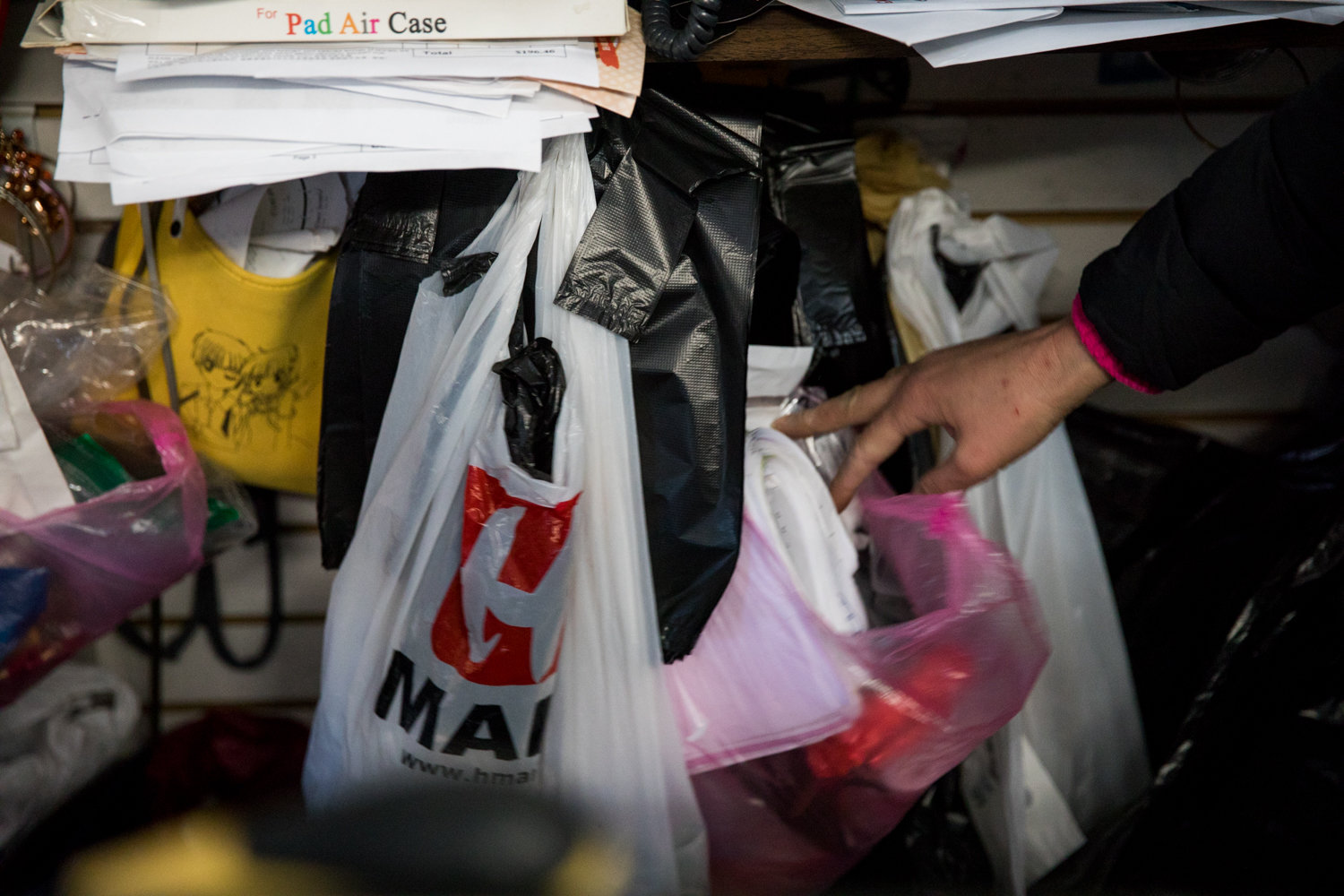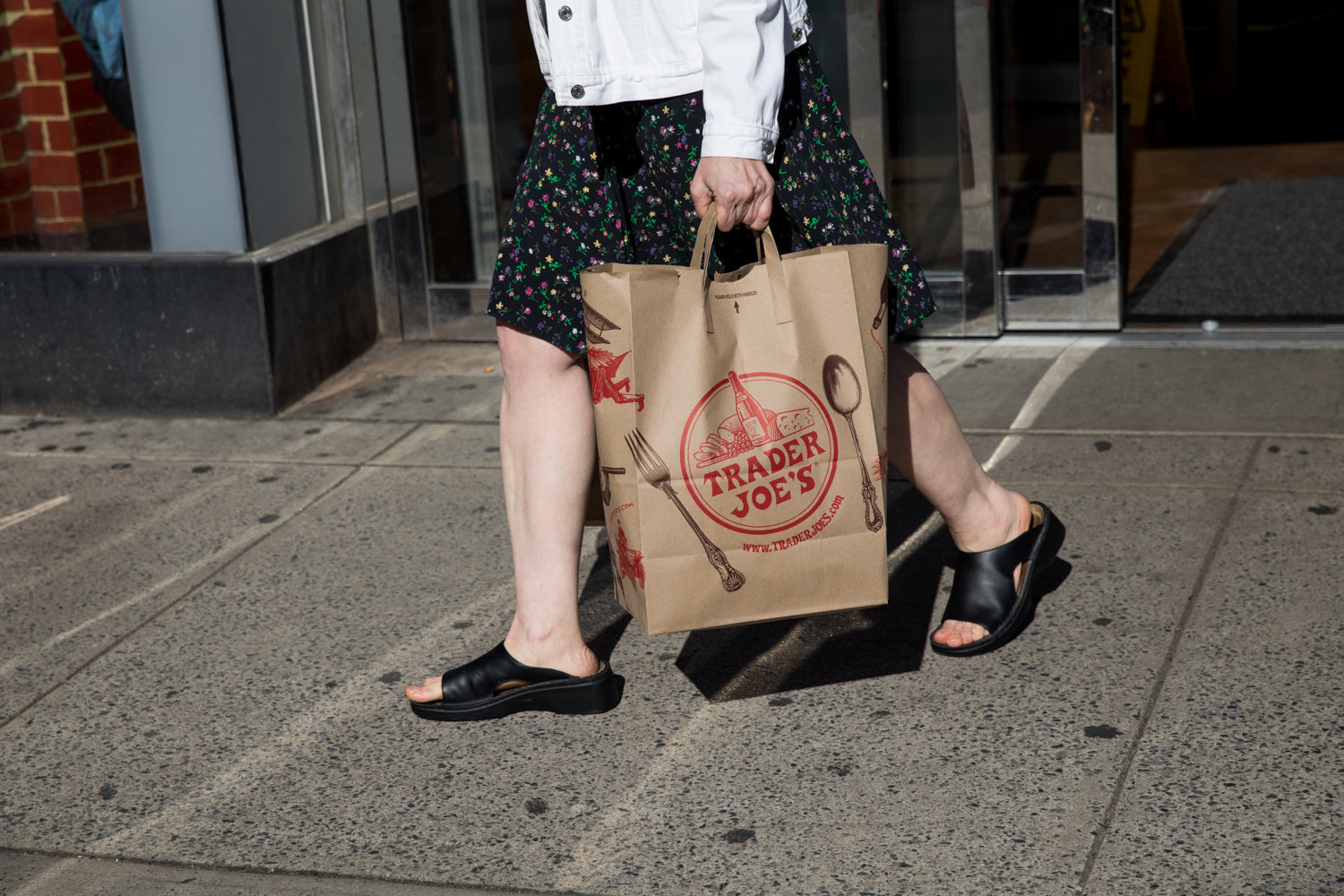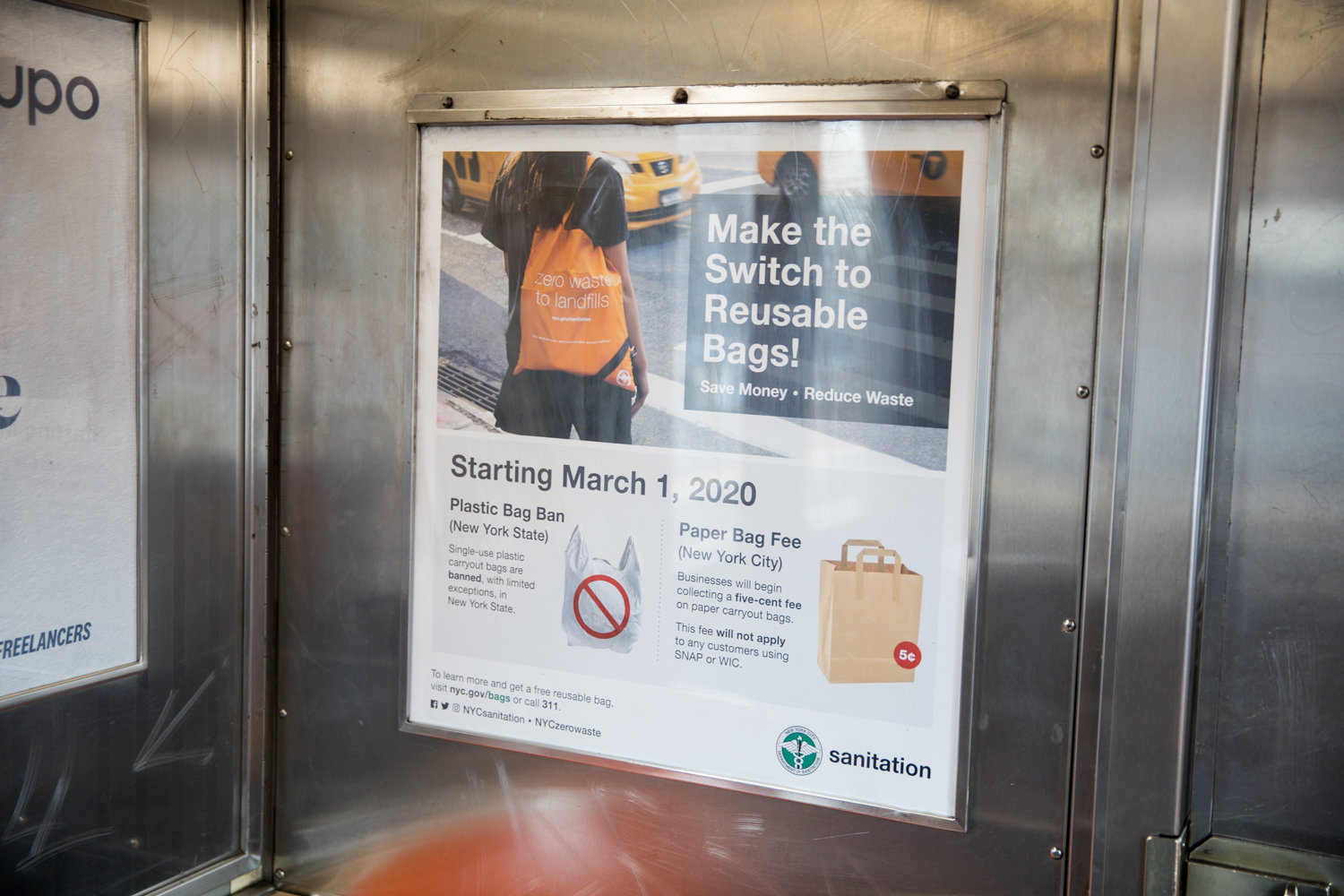As of March 1, new rules for shoppers are in the bag
Winter’s barren branches are never truly empty as chill winds howl. Gone are the gentle, rustling leaves filtering soft green light upon the lawns (or concrete) below. But the Bronx instead has the tattered, flapping, tree-dwelling shopping bag to grace the otherwise arboreal wasteland.
That could change soon. March begins a statewide ban on single-use plastic bags provided by retail stores. If the business collects state sales tax, customers better BYOB — bring your own bag.
Didn’t bring a sturdy, insulated reusable bag to fill? Some stores will still offer paper bags, but they’ll cost you — 5 cents each — unless the buyer receives government food benefits. Those fees will fill the state’s environmental protection fund and help provide people with free reusable bags.
Customers will still be able to buy reusable bags in stores where available, although the total cost for enough to fit a big grocery run is unclear.
The ban’s been on the backburner for a few years. Pundits and environmental experts have taken sides, chewing the subject to a fine pulp. Now, it’s finally become state law.
Yet it’s hard to know precisely how much has sunk into the public consciousness. Paying for paper bags when plastic has been a given may throw thousands for a loop. But then some people have been carrying their own for years.
“I think it’s a good thing,” Carole Bythewood said, tucking items into her reusable bag as Family Discount manager Kay Lin rung them up at the register. “I always carry one or two with me when I go out.”
In fact, most of the cozy Riverdale Avenue 99-cent shop’s customers either have their own bag or buy only enough they can slip into a purse or pocket once they’ve paid, Lin said.
“We’re going to prepare when it’s closer” to taking effect, she said. “We’ll order some paper bags.”
A few extra paper bags might not cut it for some stores. Not everyone carries extra bags with them. Popping into the corner store for milk and bagels as a post-work afterthought may necessitate buying a bag rather than juggling several items during a commute.
“I don’t think it’s going to be an easy transition at all because we’re going have to start charging for this,” said Andy Zoitas, owner of Garden Gourmet on Broadway. “A lot of people are going to feel like they can’t afford to pay, and a lot of people (are) going to complain.”
He estimates only about 5 percent of his customers currently carry their own reusable bag when they come to his store to shop.
But once people adjust to the change, they’ll remember to bring something along just in case, said Assemblyman Jeffrey Dinowitz. Promotions give away bags all the time, and their newfound necessity will make them more widespread.
“In fact, I’ve been building up my stack of those canvas bags for a long time now, almost to the point of being a hoarder,” the lawmaker said. “I have a lot of them there in my closet at home. They’re in my trunk.”
Humanity survived until about 40 years ago without the one-use plastic bag, Dinowitz added, and it’ll be just fine without it.
“I remember as a kid, my mother going to the grocery store with fabric bags,” said Kingsbridge Business Improvement District director Katherine Broihier. “As we get older, it became the paper grocery bags. And now every place has plastic.”
She’s not heard much consternation from the district’s retailers. Most stores have signs posted, letting customers know things change March 1.
“The problem is some of these business owners, for some reason, believe they can charge whatever they want,” she said. “So in addition to the five cents a bag, I’ve heard one store said they’re charging 10 cents.”
But that’s not allowed under the state law. The fee for paper bags is only for counties who opt into the environmental fund. Any money collected goes to the state, not back to the store’s coffers.
While some are approaching March 1 with trepidation, some locals hail the ban as the solution to discarded bags spending years in trees, choking streams, and causing wild animals slow and painful deaths.
The Hebrew Institute of Riverdale’s green team led by Ann Rauch has collected more than 600 pounds of film plastic over the last year, taking them to the Broadway Stop & Shop grocery store to recycle instead of sending to the landfill.
“Even though there will be fewer plastic bags around because of the ban, there are still lots of plastic film still being used by people every day that can be recycled,” Rauch said.
There are several kinds of plastic film products exempt from the ban that are just as recyclable. The shrink wrap holding packs of household products together, restaurant take-out bags, food storage bags, mail padding, cereal bags — there are lots of plastic film that doesn’t have to end up in the trash or littering natural areas.
“It’s hard to find anything in stores that aren’t wrapped in plastic,” Rauch said. “It’s been our goal to educate people how much plastic one household can generate, and to find ways to reduce the amount we use.”

